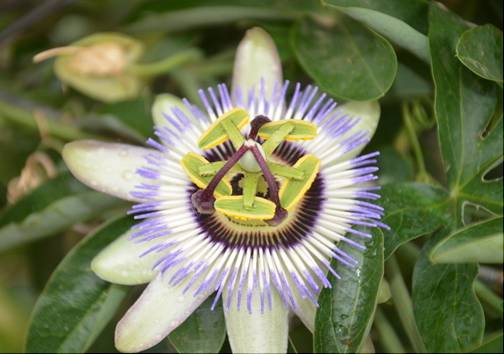Products
Contact us
- Changsha Herbal Ingredient Co.,Ltd
- Tel: 0086-731-88250818
- Add:No.56,Zhanxing Rd,Changsha,China,410205.
 sales@herbal-ingredient.com
sales@herbal-ingredient.com CHI-extracts
CHI-extracts

Passion Flower Extract
Latin Name:Passiflora incarnata L.
Active Ingredient:Flavonoids
CAS No:/
Specification:10;1,2%,3%,4%Flavonoids
MOQ:1kg
Lead Time:Within 7days after confirming order
Passionflower Extract Information:
Passionflower (Passiflora incarnata) was used in traditional remedies as a "calming" herb for anxiety, insomnia, seizures, and hysteria. During the early twentieth century, this herb was included in many over-the-counter sedatives and sleep aids. In 1978, the U.S. Food and Drug Administration (FDA) banned these preparations due to a lack of proven effectiveness. In Germany, however, passionflower is available as an over-the-counter sedative (in combination with other calming herbs such as valerian and lemon balm). It is also used in German homeopathic medicine to treat pain, insomnia, and nervous restlessness. Today, professional herbalists use passionflower (often in combination with other calming herbs) to help treat insomnia, tension, and other health problems related to anxiety and nervousness.
Approximately 2.5 percent appears to be flavonoids such as vitexin, orientin, homo-orientin, saponarin, schaftoside, and a few others as glucosides, together with free flavonoids including apigenin, luteolin, quercetin, and kaempferol.
In Europe, passionflower is required to contain not less than 0.8 percent total flavonoids, calculated as vitexin.
Plant Description:
Native to the southeastern regions of North America, passionflower is now grown throughout Europe. It is a perennial climbing vine with herbaceous shoots and a sturdy woody stem that grows to a length of nearly 10 meters. Each flower has petals varying in color from white to pale red. Inside the petals are wreaths that form rays and surround the axis of the flower. According to folklore, the passionflower was given its name because its corona resembles the crown of thorns worn by Jesus during the crucifixion. The passionflower's ripe fruit is an orange-colored, multi-seeded, egg-shaped berry containing an edible, sweetish yellow pulp.
Main Uses:
For mood disorders (depression, anxiety, stress)
For insomnia and sleep disorders
for headaches, migraines and general pain
For stomach problems (colic, nervous stomach, indigestion, etc.)
To relieve menstrual cramps and premenstrual syndrome (PMS)
Properties/Actions Documented by Research:
Analgesic (pain-reliever), anti-anxiety, anti-inflammatory, antispasmodic, cough Suppressant, aphrodisiac, cough suppressant, central nervous system depressant, diuretic, hypotensive (lowers blood pressure), sedative.
How to Take It:
Pediatric
Adjust the recommended adult dose to account for the child's weight. Most herbal dosages for adults are calculated on the basis of a 150 lb (70 kg) adult. Therefore, if the child weighs 50 lb (20 to 25 kg), the appropriate dose of passionflower for this child would be 1/3 of the adult dosage.
Adult
The following are recommended adult doses for passionflower:
Infusion: 2 to 5 grams of dried herb three times a day
Fluid extract (1:1 in 25% alcohol): 10 to 30 drops, three times a day
Tincture (1:5 in 45% alcohol): 10 to 60 drops, three times a day
The Information had not been evaluated by the Food and Drug Administration, only for reference.




